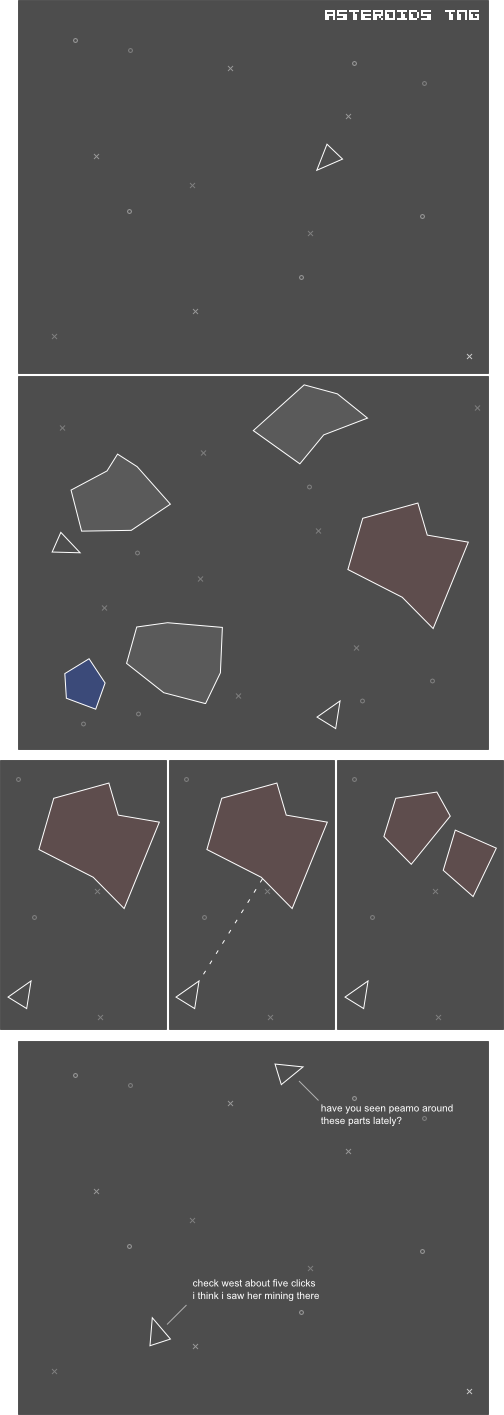I shouldn't call this a game design, because really it's just a random assortment of ideas thrown together in my head, and a mockup of the aesthetic I have in mind. The x's and o's in the background would move in parallax with relation to the ships and rocks.

If I had time to make a game right now, this would be it. Basically it looks and plays a bit like Asteroids, but the rocks don't fly around crushing you - they hang still in space, and you shoot the coloured ones to get minerals from them. It's multiplayer and set in a persistent universe, so I guess that makes it an MMO. You can fly up to other people and talk to them, trade items with them, etc.
I remember the intense excitement of the first time I played a MUD, back in the mid 90s. It wasn't the game element of it that excited me - it was the exploration and social elements. I guess I am a fan of virtual worlds more than games in that respect. I'm not that interested in grinding.
Asteroids TNG would be a bit like Diabolo, but in space and with vector graphics. That is to say, there are some asteroids that you can land on, and when you do, the game turns into a Roguelike with one short 'dungeon' per asteroid, and simple vector graphics instead of ASCII graphics. All of the monsters would be futuristic alien sounding monsters, and instead of wands and scrolls you would find rayguns, data nodes, and nanotech stems, and instead of armour you would find field generators and shielding, etc. You get to keep the inventory of things you find in the asteroid 'dungeons', and you can trade these items with other people. Later there would be space stations where you could dock to meet up with people.
The whole thing would be procedurally generated using Perlin noise to generate an infinite asteroid map, and Rogue-like logic to generate the asteroid dungeons. Lately I have been reading and obsessing over the source code of Donny Russell's AGB Rogue, which is a conversion of the original BSD Rogue for the Gameboy Advance, and probably my all-time favorite Rogue. It goes with me everywhere on my Nintendo DS. The code is incredibly unclean, but it's fun to look at the probability tables and dungeon generating functions to get an insight into how they balance the game.
The music would be chippy as hell.
Won't someone give me a wad of cash to make this social roguelike space MMO? I swear I will port it to Nintendo DS, iPhone, web, Xbox360, widgets, gadgets, screenlets, Windows, MacOS, Linux, and the Wii, and make you millions of dollars.
